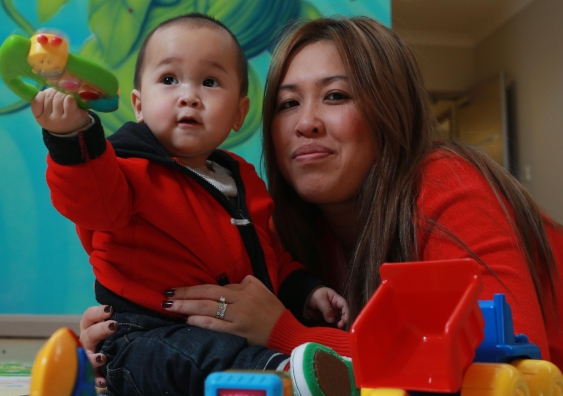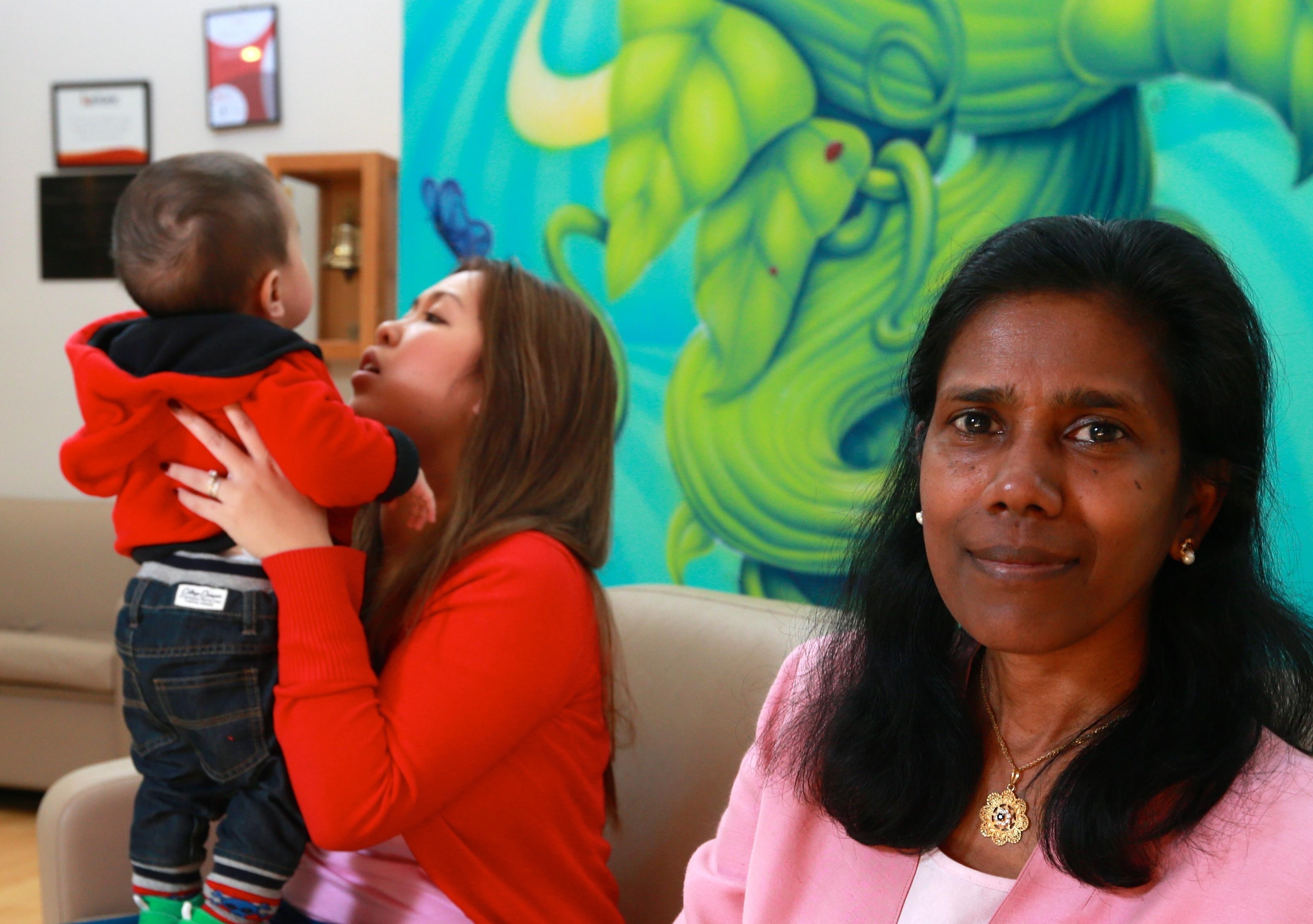Poor mother-baby bonding passed to next generation
Levels of the trust hornone oxytocin in new mothers and how well they bond with their babies may be connected to their own experiences as newborns, landmark UNSW-led research reveals.
Levels of the trust hornone oxytocin in new mothers and how well they bond with their babies may be connected to their own experiences as newborns, landmark UNSW-led research reveals.

Trust pathways in the brain are set in infancy and passed on from mother to child, according to landmark UNSW-led research. The work relates to oxytocin levels in new mothers and proves for the first time that it is linked to their reported disturbance in bonding with their own mothers.
The paper has been published in the prestigious journal PLOS ONE.
Blood samples taken from women with troubled maternal relationships showed a clear deficit in oxytocin, the trust and bonding hormone, compared with those who reported close childhood ties with their mother. The two groups of women were recruited through Liverpool Hospital.
“The immediate postpartum results show that what you experienced from parenting – these formative experiences – are critical in wiring your response to the hormone,” says the first author of the paper, UNSW Professor Valsamma Eapen, who is Chair of Infant, Child and Adolescent Psychiatry.
“So we see this dysfunctional, or disrupted relating as an intergenerational cycle and just increasing oxytocin levels with a puffer or spray alone won’t change that,” says UNSW Professor Eapen, who is based at the Ingham Institute and Liverpool Hospital.
Oxytocin triggers a dopamine reward response in the brain that promotes newborn bonding as a pleasurable activity. In the baby, this bonding sets lifelong oxytocin release pathways that, if compromised, will affect the child’s own future attachment relationships.
There was an obvious difference in oxytocin readings between the women two months after their babies were born.
The work was carried out by UNSW in partnership with South Western Sydney Local Health District and Karitane, which works with children and their parents from birth to 5 years.
Karitane CEO Grainne O’Loughlin says the work is invaluable for families and that it “gives us the chance to provide that evidence-base, and will lay the foundations for us to expand, over time, what it is that we do”.
“For me, partnerships with universities – that evidence base to our work– is really fundamental. It’s the key to our sustainability going forward,” she says.
This work could be a breakthrough in identifying at-risk mothers and helping them break the cycle, Professor Eapen believes.
“What we are now developing is attachment-based cognitive behavioural therapy for mums to reframe their own perspectives and attitudes to fix problems that have been pre-programmed,” says Professor Eapen, who anticipates that this type of therapy could be used either on its own or perhaps in combination with oxytocin.
The babies will be followed up through Karitane, to examine the anxiety response in the child at one year of age.
Separation Anxiety and Oxytocin in Pregnancy was co-authored by UNSW Professor of Psychology Mark Dadds; Bryanne Barnett from UNSW Psychiatry; Jane Kohloff from Karitane Services; Feroza Khan and Naomi Radom from UNSW Psychiatry. The senior author is UNSW Professor of Psychiatry Derrick Silove.
The Linkage Grant was funded by the Australian Research Council.
Read more in the The Parenting Trap in the latest issue of Uniken.
Media contact: Lissa Christopher, UNSW Media Office, 9385 8920.
